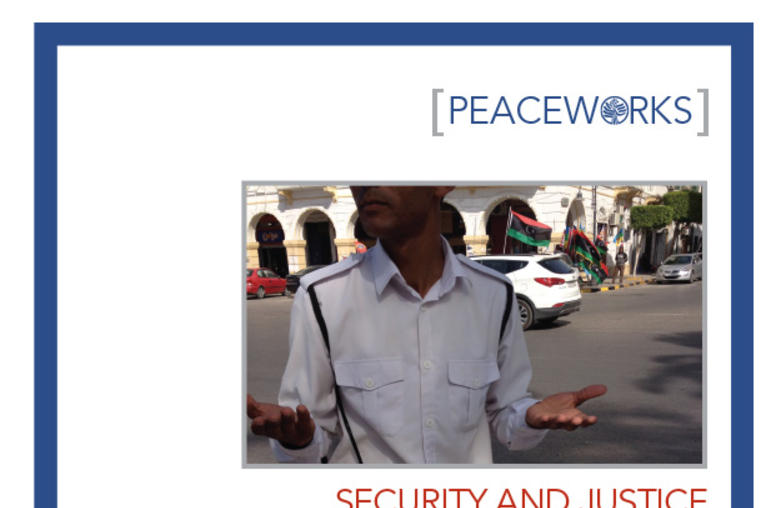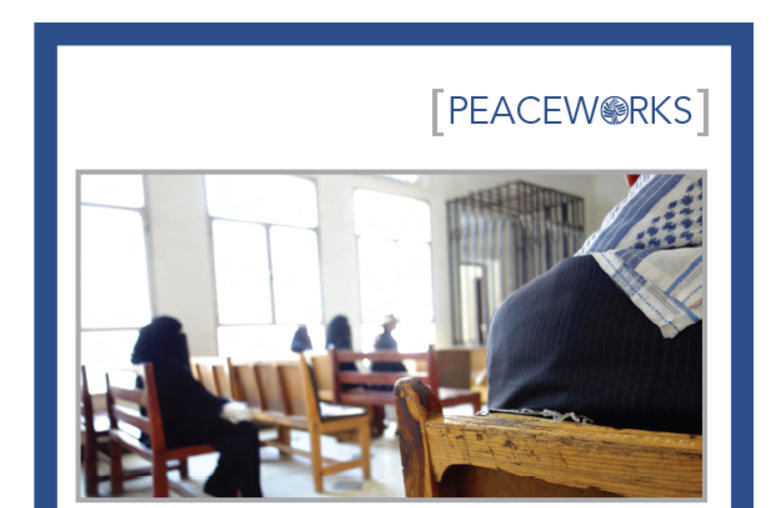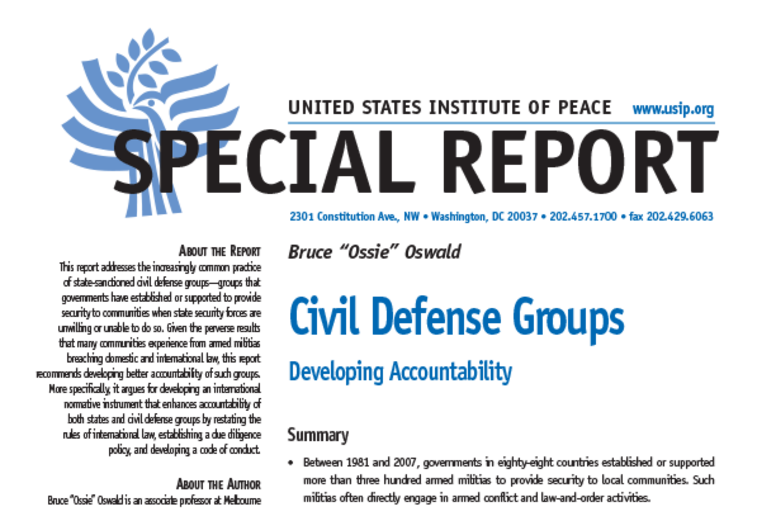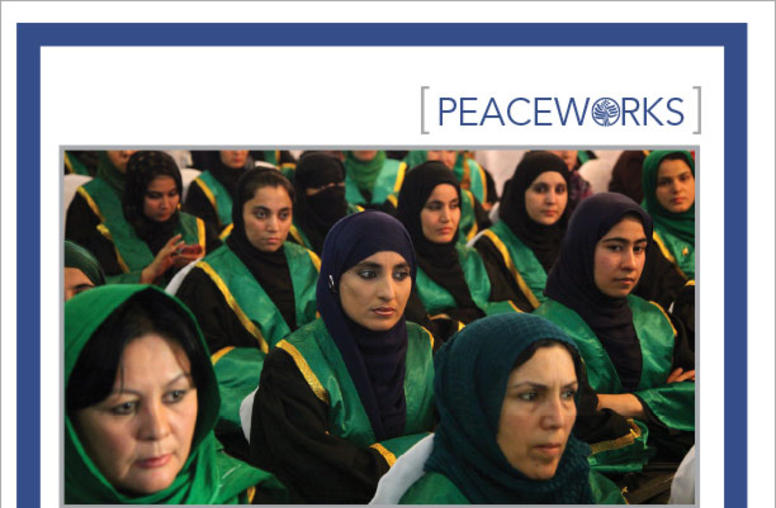Why Gender Issues are Important in Security Sector Reform
In rebuilding efforts, integration of gender is key to operational effectiveness, local ownership, and civilian oversight. Security Sector Reform not only creates more employment/involvement opportunities generally, it also increases the participation of women within the security sector. This meeting of USIP's SSR Working Group marked the official American launch of the Gender & Security Sector Reform Toolkit developed by the Geneva Centre for Democratic Control of Armed Forces (DCAF).
Security sector reform (SSR) is a critical component of the transition from post-conflict to democratic governance. Though often overlooked in the post-conflict reconstruction efforts, SSR focuses human rights and security on the ground, in addition to creation of structures for civilian oversight.
In rebuilding efforts, integration of gender is key to operational effectiveness, local ownership, and civilian oversight. SSR not only creates more employment/involvement opportunities generally, it also increases the participation of women within the security sector.
Responding to the need for information and analysis on gender and SSR, the Geneva Centre for Democratic Control of Armed Forces (DCAF) developed the Gender & Security Sector Reform Toolkit. It provides policymakers and practitioners with an introduction to why gender issues are important in SSR and what can be done to integrate them. This meeting of USIP's SSR Working Group marked the official American launch of this product that has become a reference text for gender consideration in SSR.
Speakers
- Anja H. Ebnother
Assistant Director and Head of Special Programmes
Geneva Centre for the Democratic Control of Armed Forces - Charlies Snyder
Acting Deputy Assistant Secretary for Civilian Police
and African, Asian, and European Programs, US Department of State - Heike Gramckow
Senior Counsel, Justice Reform Practice Group, Legal
Vice Presidency, the World Bank - Carla Koppell
Director, The Initiative for Inclusive Security - Robert Perito, Moderator
United States Institute of Peace



